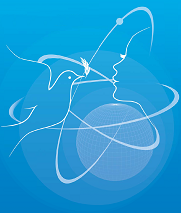Speaker
Jinsil Seong
(yonsei university, Republic of Korea)
Description
Global incidence of malignant disease is increasing without exception. Unfortunately, the rate of increase seems much higher in low to middle income (LMI) countries comparing to that in high income countries. Despite this fact, current global health interest and the support accordingly has been mostly focused on eradicating communicable disease. How do we approach to non-communicable disease in those countries? First, a nationwide and in-depth investigation is required to identify the most urgent need in the country. Second, a cancer control capacity needs to be investigated. Third, substantial solution needs to be provided.
The first issue can rather be easy to be accomplished. The second issue of cancer control capacity in each country needs in-depth discussion; the most important elements are how to train and maintain health professionals in cancer therapy and whether the facility-radiotherapy machine can be eligible. According to International Atomic Energy Agency Report, the number of radiotherapy machines is far less in LMI countries comparing to that in high income countries. Increasing rate of non-communicable disease, cancer, and far less number of cancer control facility creates unmet needs in cancer radiotherapy in those countries. This is a striking contrast to current situation in most high income countries, where cutting-edge radiotherapy technology, such as intensity modulated radiotherapy, image guided radiotherapy, as well as particle radiotherapy, is frequently used in daily practice of cancer therapy despite of the high cost of the equipment.
Now it is time to show our interest to eradiating non-communicable disease in LMI countries. To fulfill this goal, comprehensive approach seems to be essential with the experts in diverse specialty in health science, particularly in radiotherapy and nuclear technology field. The WIN-global is expected to contribute to this issue.
| Country or International Organization | Republic of Korea |
|---|
Primary author
Jinsil Seong
(yonsei university, Republic of Korea)

